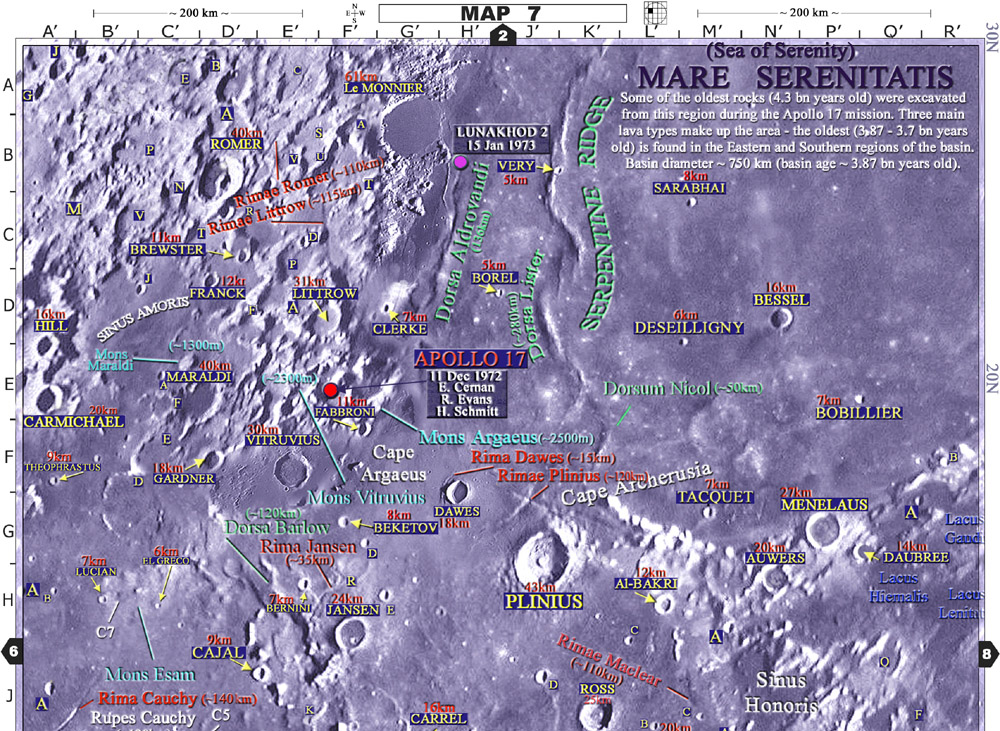Difference between revisions of "April 23, 2009"
| Line 3: | Line 3: | ||
<!-- ws:start:WikiTextHeadingRule:2:<h1> --> | <!-- ws:start:WikiTextHeadingRule:2:<h1> --> | ||
<!-- ws:start:WikiTextLocalImageRule:8:<img src="/file/view/LPOD-Apr23-09.jpg/69166247/LPOD-Apr23-09.jpg" alt="" title="" /> -->[[File:LPOD-Apr23-09.jpg|LPOD-Apr23-09.jpg]]<!-- ws:end:WikiTextLocalImageRule:8 --><br /> | <!-- ws:start:WikiTextLocalImageRule:8:<img src="/file/view/LPOD-Apr23-09.jpg/69166247/LPOD-Apr23-09.jpg" alt="" title="" /> -->[[File:LPOD-Apr23-09.jpg|LPOD-Apr23-09.jpg]]<!-- ws:end:WikiTextLocalImageRule:8 --><br /> | ||
| − | <em>top half of atlas sheet from [http://homepage.eircom.net/~jayem4646/index.htm | + | <em>top half of atlas sheet from [http://homepage.eircom.net/~jayem4646/index.htm Moon Atlas] (John Moore, Ireland)</em><br /> |
<br /> | <br /> | ||
The appearance of a new lunar atlas, no matter how infrequent, is always grounds for celebration. John Moore, who first created a lunar poster and foldup globe, has now released a 20 sheet spiral bound atlas based on his new photographic mosaic. Apparently the atlas is available with south up, north up and north up mirror imaged to fit all telescope users. More than 3000 features are identified, with diameters given for named craters. Locations of landings are also marked and ages are given for some maria. The labels of features are color coded - red for rilles, for example - so you can easily pick out similar types of landforms. A text summarizes geologic and physical information about the Moon, and the atlas ends with a comprehensive index. If you are a compulsive collector you will crave this atlas, and if you simply need a colorful guide to use as at the telescope, this may be for you.<br /> | The appearance of a new lunar atlas, no matter how infrequent, is always grounds for celebration. John Moore, who first created a lunar poster and foldup globe, has now released a 20 sheet spiral bound atlas based on his new photographic mosaic. Apparently the atlas is available with south up, north up and north up mirror imaged to fit all telescope users. More than 3000 features are identified, with diameters given for named craters. Locations of landings are also marked and ages are given for some maria. The labels of features are color coded - red for rilles, for example - so you can easily pick out similar types of landforms. A text summarizes geologic and physical information about the Moon, and the atlas ends with a comprehensive index. If you are a compulsive collector you will crave this atlas, and if you simply need a colorful guide to use as at the telescope, this may be for you.<br /> | ||
<br /> | <br /> | ||
| − | <em>[mailto:tychocrater@yahoo.com | + | <em>[mailto:tychocrater@yahoo.com Chuck Wood]</em><br /> |
<br /> | <br /> | ||
<hr /> | <hr /> | ||
Revision as of 17:12, 11 January 2015
Congratulations, John!

top half of atlas sheet from Moon Atlas (John Moore, Ireland)
The appearance of a new lunar atlas, no matter how infrequent, is always grounds for celebration. John Moore, who first created a lunar poster and foldup globe, has now released a 20 sheet spiral bound atlas based on his new photographic mosaic. Apparently the atlas is available with south up, north up and north up mirror imaged to fit all telescope users. More than 3000 features are identified, with diameters given for named craters. Locations of landings are also marked and ages are given for some maria. The labels of features are color coded - red for rilles, for example - so you can easily pick out similar types of landforms. A text summarizes geologic and physical information about the Moon, and the atlas ends with a comprehensive index. If you are a compulsive collector you will crave this atlas, and if you simply need a colorful guide to use as at the telescope, this may be for you.
Chuck Wood



